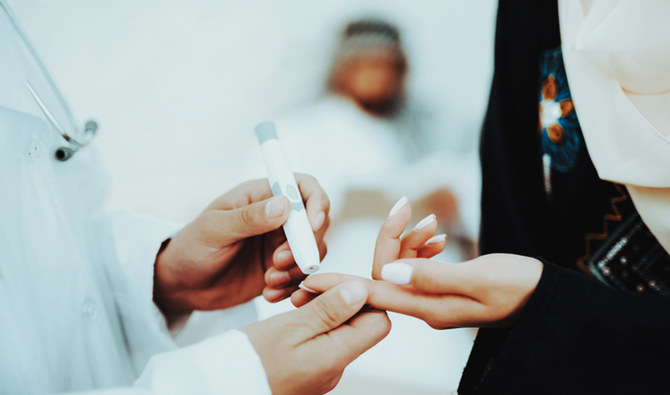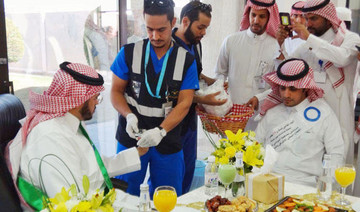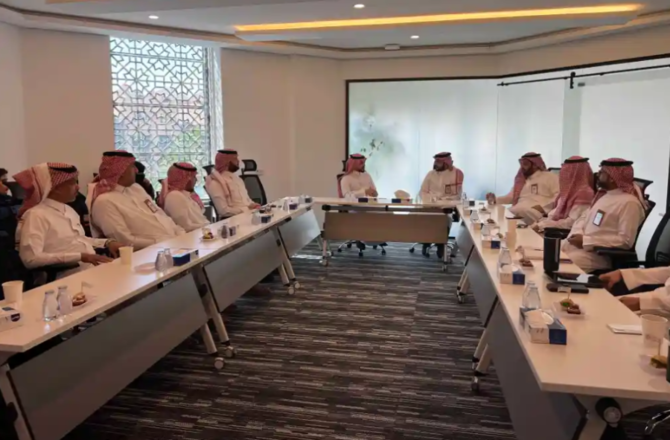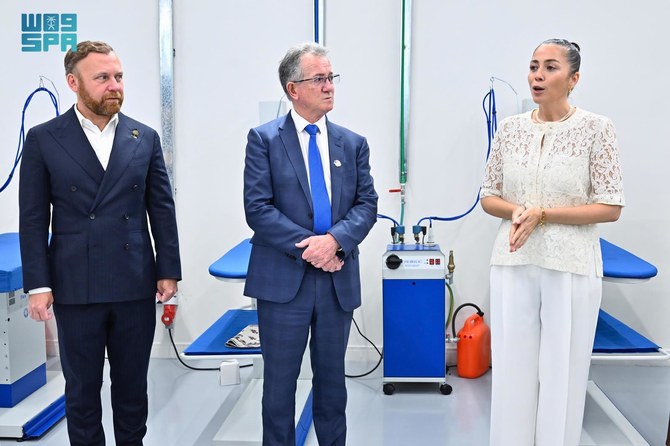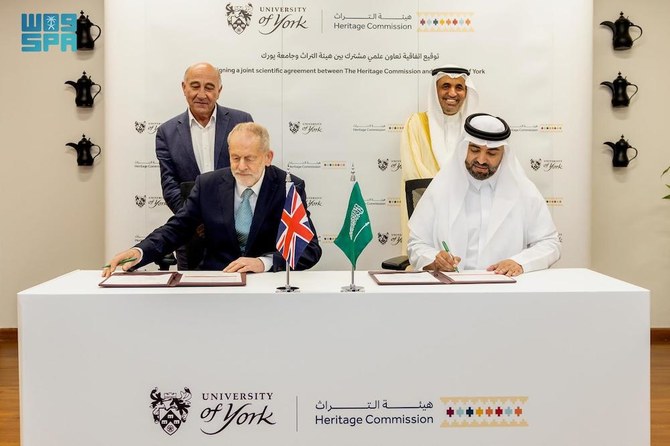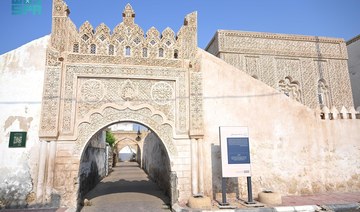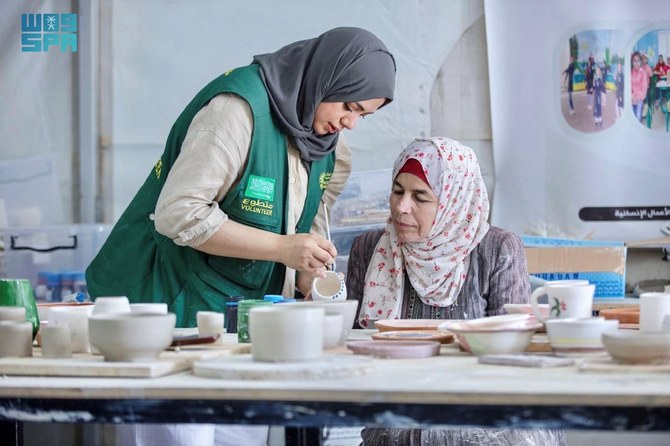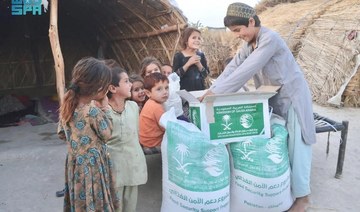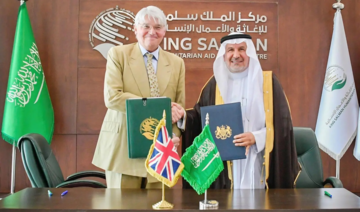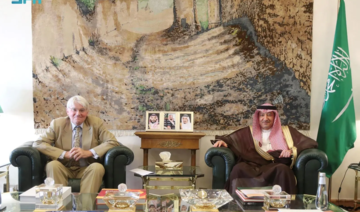DUBAI: Saudi Arabia is aiming to defuse its diabetes time bomb by reducing the prevalence of the disease by 10 percent over the next decade, with a new report warning of the crippling economic and social burdens the illness
is placing on the region.
While several Middle East countries have a roadmap to stem a crisis that threatens to overwhelm health-care systems — with Saudi Arabia highlighted as a key example — the region is experiencing what is “potentially the greatest epidemic in human history,” according to an in-depth report on diabetes in MENA by advisory firm Colliers International.
According to the report, “Diabesity — Impact on the MENA Region,” an estimated 39 million people suffer from diabetes in the region. However, this figure will soar to 82 million by 2045 — an increase of 110 percent — unless governments work to create a U-turn on prevalence rates by embracing revolutionary technology, improving prevention programs and implementing new measures to control lifestyle diseases.
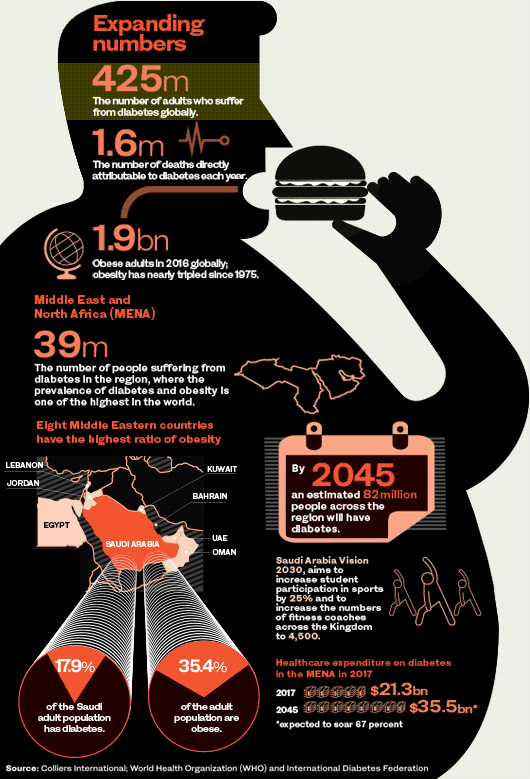
“Aside from the genetic basis of diabetes, changing lifestyles — often a result of rising disposable income and urbanization — are considered as one of the major contributing factors for diabetes,” said Mansoor Ahmed, the Middle East and North Africa director of real estate, health care, education and PPP for Colliers International.
“A drop in activity and unhealthy dietary habits have combined to form a variety of lifestyle diseases, and health professionals and researchers now consider diabetes as potentially the greatest epidemic in human history.”
According to the World Health Organization, 425 million adults globally suffer from diabetes. One in three adults over the age of 18 years is overweight and one in 10 is medically obese, causing 1.6 million deaths directly attributable to diabetes each year.
Complications of the disease include blindness, kidney failure, heart attacks, strokes and lower limb amputation.
Based on estimates by the International Diabetes Federation (IDF), the number of diabetic patients worldwide is expected to increase from 425 million in 2017 to 629 million in 2045; an increase of 48 percent. However, the biggest increase is expected to be in MENA (110 percent) and Africa (156 percent), affecting mortality, loss of productivity and increased health-care spending.
According to the Colliers report, 17.9 percent of the Saudi adult population has diabetes, and many more are likely to be either undiagnosed or pre-diabetic, a condition that leaves many on the edge of the chronic disease. More than a third (35.4 percent) of the Kingdom’s adult population is obese.
In 2017, health-care spending on diabetes in MENA reached
$21.3 billion and is expected to rise by 67 percent, or $35.5 billion,
by 2045.
Saudi Arabia spends the largest proportion of its health-care budget (24 percent) on diabetes, according to the report, which also revealed that in the MENA region, the prevalence of diabetes and obesity is one of the highest in the world.
Eight Middle Eastern countries — Saudi Arabia, UAE, Oman, Jordan, Kuwait, Bahrain, Egypt and Lebanon — have the highest ratio of obesity among adults globally, with 27 to 40 percent of the total population being chronically overweight.
The Colliers report notes that many governments in the region, including Saudi Arabia and the UAE, are taking steps to control lifestyle diseases that lead to diabetes and obesity.
The Kingdom plans to reduce diabetes prevalence and “aspires to be at par with the average of the top 5 most livable countries (where diabetes prevalence ranged from
3 to 8 percent) from its current 17.9 percent,” said Ahmed.
“The 2020 target is to achieve a 3 percent reduction in obesity and to decrease diabetes prevalence by 10 percent by 2030.”
A recent survey by the Saudi Scientific Diabetes Society said that “more than 52 percent of patients with Type 2 diabetes die of cardiovascular causes,” and the Kingdom is ranked among the top 10 countries in the world with the highest prevalence of diabetes.
Saudi Arabia, said Ahmed, should be praised for introducing measures to create a healthier nation and, in turn, reduce prevalence rates.
“Many governments in the region, including Saudi Arabia and the UAE, have taken steps to control lifestyle diseases that lead to diabetes and obesity,” said Ahmed. “For example, the Saudi government’s ‘Quality of Life Program 2020’ is one of the Vision Realization Programs of Saudi Arabia 2030, which aims to enhance the quality of life in the Kingdom through lifestyle improvement by increasing individuals’ participation in entertainment, sport and cultural activities.”
As part of its Quality of Life Program, Saudi Arabia aims to boost student participation in sports by 25 percent and to lift the numbers of fitness coaches across the Kingdom to 4,500.

Other measures, including taxing sugary drinks, fitness initiatives and focusing on preventative care, have already been rolled out to address the rising epidemic.
The report sets out a number of recommendations for MENA countries, including embracing key trends in science and technology such as artificial intelligence (AI), “wearables” in technology and telemedicine.
“Advancement in mobile and communication technology is playing a critical role in the management of chronic illnesses such as diabetes and obesity,” said Ahmed. “It is becoming increasingly possible to track a patient’s key parameters such as ECG (a recording of the electrical activity of the heart), temperature, blood pressure, glucose levels, physical activity and diet intake through mobile apps, wearable devices or implanted devices.
“The data can then be transmitted to health-care providers for monitoring of a patient’s vital signs, adherence to treatment plans and to provide remote consultation/coaching when needed.”
Ahmed said the “explosive growth” in telemedicine — the remote delivery of health-care services — and AI should also
be utilized.
“AI has immersive benefits to overweight/obese and pre-diabetic and diabetic individuals as they can actively monitor their health and take risk-litigating measures,” he said. “Data gathered from AI apps can provide deep insights on epidemiology and disease patterns.
“Environmental, regional, occupational and genealogical data layered into AI-based systems can provide early profiling, allowing physicians to diagnose problems more efficiently.”
The report says regional health markets also need to plug current gaps, such as introducing specialized service centers, health-driven wellness retreats and dedicated rehabilitation centers, to drive down diabetes prevalence.
Ahmed said stem-cell therapy also offers a potential lifeline for major health challenges facing Saudi Arabia and the wider Gulf, such as diabetes.

“Saudi Arabia is one of the few, but growing, list of countries which sanctions the use of embryos for therapeutic and research purposes if obtained from a permissible source, which includes the placenta or umbilical cord and leftover embryos from in-vitro fertilization (IVF).
The diabetes and obesity epidemic is mirrored across the region, said Ahmed, with Egypt and the UAE having similar prevalence rates to the Kingdom.
In Oman, Dr. Wasim Sheikh Hammoud, a specialist endocrinologist at Aster Al Raffah Hospitals & Clinics Oman, told Arab News that by 2050 there will be an estimated 350,000 people with Type 2 diabetes living in the Gulf country, a 174 percent increase compared with 2015.
“Sedentary lifestyles and poor dietary choices are to blame for the rise in the prevalence of diabetes in Oman,” he said.
The UAE has rolled out similar tactics to combat the epidemic, such as implementing an obesity task force, introducing a sugar tax and discussing policies such as a blanket ban on the marketing of unhealthy foods.
“Diabetes is a serious and increasing global epidemic, and accurate estimation of the burden is essential for efficient allocation of resources,” said Dr. Maneesha Pandey, a specialist endocrinologist at Aster Clinic, Bur Dubai.
“The Dubai Health Authority is coming up with a diabetes registry, which will provide real-time statistics of diabetes in the emirate. It will be of great help to draw appropriate strategies and tailor our preventive campaign accordingly.
In addition, government and health authorities are making commendable efforts to increase awareness about healthy lifestyle and prevention of diabetes.”



